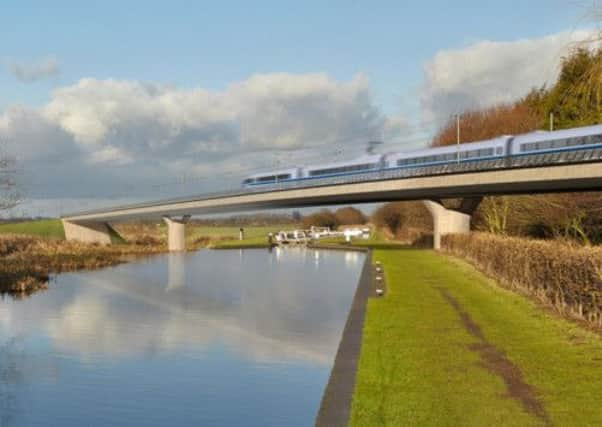KPMG bosses deny ‘cherrypicking’ on HS2 report


In a report commissioned by HS2 Ltd, professional services company KPMG concluded that the high-speed rail project could produce annual benefits of £15 billion.
The report listed areas that would particularly benefit from the scheme, but the extent to which regions not on the proposed line would be affected was only revealed after a Freedom of Information request passed to BBC2’s Newsnight programme.
Advertisement
Hide AdAdvertisement
Hide AdTwo KPMG chiefs were questioned today by the House of Commons Treasury Committee. It was put to them that the Taxpayers’ Alliance said it was “utterly dishonest” to spend tax money on a report and then “cherrypick” what went into it.
KPMG head of infrastructure, building and construction Richard Threlfall said: “We would completely reject that claim. We didn’t cherrypick. We have gone out of our way to be as transparent as possible.”
He added that information about the “winners and losers” from the scheme was set out on a map in the report as this was “clearer” than setting out a table of numbers.
Mr Threlfall said it was KPMG’s decision alone to publish in this fashion and that there had been no pressure from HS2 Ltd.
Lewis Atter, a partner in KPMG’s global infrastructure and projects group, speaking about the £15bn forecast, told the committee: “If anything, it [the figure] feels a little undercooked. It’s a little low. It’s conservative.”
He said the forecast was reasonable and reliable, even though the committee’s chairman Andrew Tyrie quoted a passage from KPMG’s report, explaining the way the forecast was reached, which said: “We recognise that this approach does not have a firm statistical foundation.”